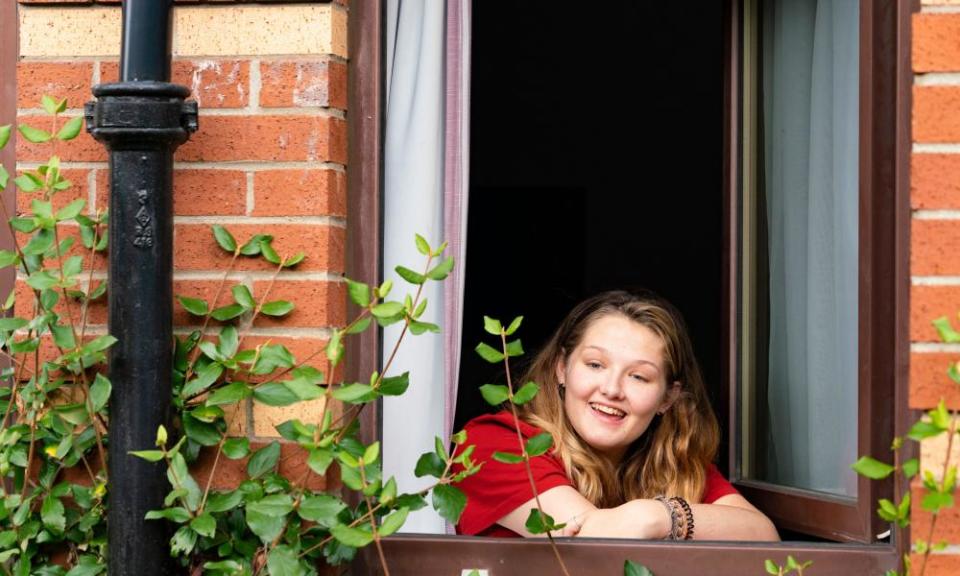Hall hunting: how to find a student flat in a pandemic

The market for student rentals is as active as ever, regardless of Covid restrictions on campuses. “It may be more difficult for students this year but it’s busier than we would have thought,” says Martin Blakey, chief executive at the student housing charity Unipol. “Students are really determined to have as close as possible to a traditional uni experience, and are planning their future as they normally would.”
But finding a flatmate in a pandemic isn’t easy. Drama student Daisy Widdess*, who found a flat last week, says she is one of the lucky ones. “A lot of people have absolutely no idea who they’re going to live with. We haven’t had the chance to meet many people and the friends we have made don’t know each other. It’s a whole palaver.”
If you are feeling worried about who to live with or how to find a house, here’s what to do next.
Letting agents might push you – don’t let them
There may be pressure to find student accommodation early, but don’t be rushed by letting agents. “It’s a myth that if you don’t do it in the first few months you won’t get a place,” says third-year University of Warwick student, Darcey Edkins. “There will always be landlords and apartments that will take you.”
This year, there is more reason to be cautious. Many students have fallen behind on their rent, been trapped in tenancies they no longer need when teaching has moved online, and often had to spend increasing amounts of time in poor-quality housing. As a result, the National Union of Students (NUS) says students should be especially careful when signing up to new tenancies, ensuring they are not trapped into paying rent for a property they may not use for the whole duration of the contract.
Choose your housemates carefully
In previous years, you could have met future housemates on nights out or through societies. This year, however, many are leaning towards living with people from their accommodation. If this doesn’t work for you, don’t be afraid to branch out and find others. “Don’t rush into it if the people are not right for you,” says Edkins.
Blakey says they are seeing a rise in students getting a room in a house full of strangers. “It is not uncommon for houses to look for extra people to fill the rooms,” he says. Consider partnering up with one person and joining others in a search.
Advertise online
Social media can be a good tool for finding housemates. You can reach out to students from your course and look into connecting with like-minded people in student groups on Facebook.
Students’ unions often run speed dating type socials for flatmates and many of these have moved online. At Bristol University, for instance, there are virtual “find a flatmate” events that cover topics such as size, location and budget. At Royal Holloway, University of London, there is an advice centre that specialises in matching people with other households. If you haven’t seen anything advertised, contact your students’ union.
Try to set up a viewing
Most viewings are taking place online, but try to visit the property if you can. If you do an online viewing, make sure you are shown every aspect of the property, especially the ceiling of the bathroom to check for any damp or mould. Take a walk to the area and see if you like the feel of it.
Bristol University’s student living officer, Ruth Day, says her top tip is to ask the current tenants what they think of the house and the landlord. Widdess says this worked for her: “The first house we saw looked so nice online, but I managed to speak to one of the girls, and she said the wifi was awful and the plumbing was like something from the 18th century.”
Be wary, though – some landlords are struggling to fill rooms, so they are now incentivising their tenants to find people for them. “We’ve been offered £20 each from our landlord,” says Edkins.
Social media is another common way for people to vent about the problems they’ve had with particular landlords and agents.
Be open to all options
If you’re feeling too rushed, consider purpose-built student accommodation or returning to halls where possible. Rooms tend to be filled much later in the academic year and if you’re struggling to find flatmates this may be a good option, as you will all be thrown in together and you will meet more people.
*name has been changed

 Yahoo News
Yahoo News 